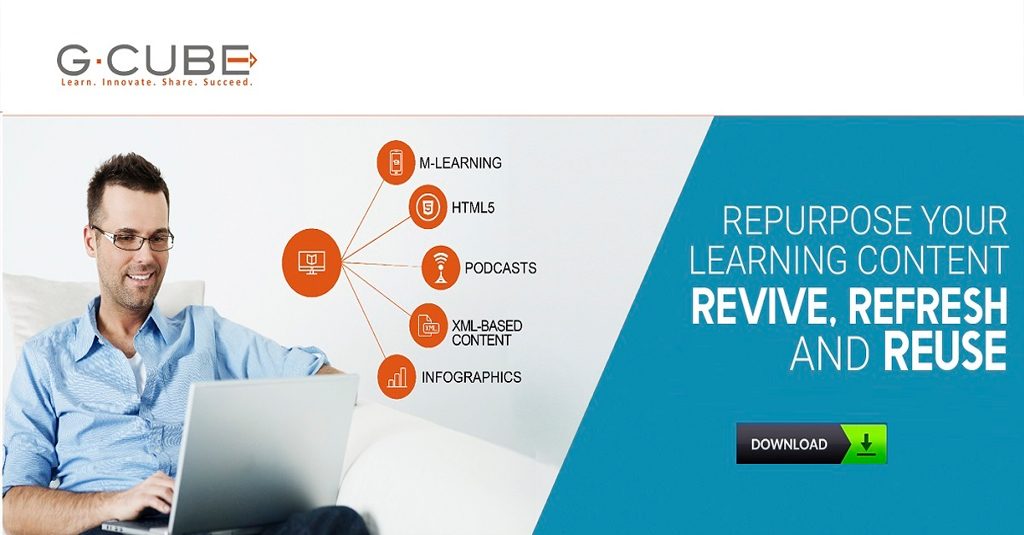With the increasing popularity and demand for effective e-learning content, developing a fresh and well-researched piece of content every time can be a challenging task. Therefore, recycling or reusing the content is an effective approach that can be followed to get more mileage out of the existing content. Many people think of web content as interactive blogs and other relevant content, but increasingly online content developers also create audio and visual learning content as well. Repurposing content such as blogs and webinars into other forms such as whitepaper or podcasts is considered as one of the best ways to reuse existing content.
Re-created for Different Audiences
Take a look at your old content and think of the ways how it can be updated with new developments and practices. This helps in keeping content updated without adding new nuggets of information. At the same time, it is significant to look for new opportunities to expand older blog posts and use same information as a starting point for some new piece. Let us discuss few benefits of repurposing old content as follows:
Easy to create
The repurposed content is easier and faster to create because the already existing elements like videos and images need not to be changed. When you reuse the same content, you can simply add new information and present it with a new perception.
Get an SEO boost
Multiple pieces of information on the same topic help driving more opportunities to target a specific keyword. In addition, if you take repurposed content outside your website, you can receive quality links to your site with an added advantage of controlling the anchor text in the link.
Reach new audiences
Same content created in varied formats and across multiple platforms reach out to wider audiences and helps improving brand visibility.
Improve brand credibility
Repetition is an important marketing strategy, but people get tired of reading the same content time and again. Repurposing enables delivery of same message in multiple ways and sustain it for good amount of time, which helps increasing brand credibility in the market.
Save money
Once the original content is created, it is easier to transfer that content in different format, rather than starting it from scratch. With repurposed content, campaigns that focus on specific theme can be organized and then those ideas translated across diverse channels. It can be challenging to develop consistent and high-quality content to improve business performance and learners’ engagement. There are several ways to create new content from old. Let us think about transforming an old blog post into a Frequently Asked Question document, a webinar or a newsletter. Discussed below are some of the ways how content can be repurposed into different formats:
Turn blogs into eBook or whitepaper
The blogs can be recombined to form a lengthier piece of marketing including eBook or whitepaper. It is important to find blog content that can align thematically and can be easily transformed into the right kind of document.
Use statistics as social content
Statistics are shareable and easy to tweet and post. If you already have the researched content that contain bite-sized statistics, then it can help driving your social media campaigns.
Turn webinars into podcasts
Some people upload podcasts directly to YouTube and some use Skype to create video podcasts. This strategy enables your content to stay online and reach maximum audience.
Storytelling
You can implement storytelling feature to rewrite a formal article or blog post, telling the story of how you helped client solving a specific problem.
Design infographics from data
Most of the times, the original data is chunked in the form of blogs and white papers. Doing some graphic design work, the same content can be transformed into visual content that is more appealing and shareable.
Whether you want to save money or reach more number of target audiences, content repurposing has its advantages. To stay ahead of the competition in content marketing and enhance your message, you can give a try to the above discussed ideas. Repurposed content resonates more influentially with the audience. As the same content is translated into new ideas and on newer platforms, you will experience unique and more engaged learning experience. Changing old information helps you salvage the content and only change a few details. When you publish that content, a brief note can be added to let audiences know about the content origins.
The above were the benefits of repurposing content into different forms. To know more, click here to download the white paper for free.








